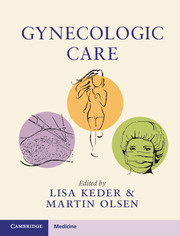Book contents
43 - Cultural Competency
from Section 6 - General Considerations
Published online by Cambridge University Press: 01 February 2018
Summary
Introduction
An awareness of the need for cultural competency among healthcare providers is growing in importance. As a concept, cultural company has appeared in the literature with increasing frequency since 1989. Culture can be defined as the dynamic and multidimensional context of many aspects of the life of an individual. It includes gender, faith, sexual orientation, profession, tastes, age, socioeconomic status, disability, ethnicity, and race.
Cultural competency calls us to respect, understand, appreciate, and interact with persons from cultures and/or belief systems other than our own. Individual values, beliefs, and behaviors about health and well-being are shaped by various factors, including culture. Nursing and social work literature are replete with references on the subject. Patient care is affected by culture. When discordance between a patient's culture and established medical practices exists, culture usually wins. This situation can result in the appearance of noncompliance and its associated poor outcomes.
The gynecologist who takes the initiative to learn from the patient and respect the role of culture in health and illness will avail him/herself of the opportunity to meet the felt needs of the patient, increase compliance, and obtain satisfactory outcomes.
Scope of the Problem
The face of the United States of America has changed in the past decade. Between 2000 and 2010 there has been a 43.3 percent increase in Asian population, 43.0 percent increase in persons of Hispanic or Latino origin, 18.4 percent increase in American Indian and Alaska native population, 12.3 percent increase in Black or African American population, and a 5.7 percent increase in white, non-Hispanic population.
This diversity can present challenges to the gynecologist in the routine care of the patient. Cultural healing practices, ethnopharmacology, and the diverse roles of women in culture all play an important role. Especially in gynecology, which addresses perhaps the most intimate aspects of a woman's life, it is important to be sensitive to traditional beliefs and boundaries (especially physical) of the patient. Beliefs about contraception and infertility may be strongly influenced by religion or culture, as well as the perception of abnormalities of menstruation. Clear communication is essential for compliance and satisfactory outcomes. Cultural awareness and sensitivity are important in the development of cultural competency.
- Type
- Chapter
- Information
- Gynecologic Care , pp. 411 - 420Publisher: Cambridge University PressPrint publication year: 2018

